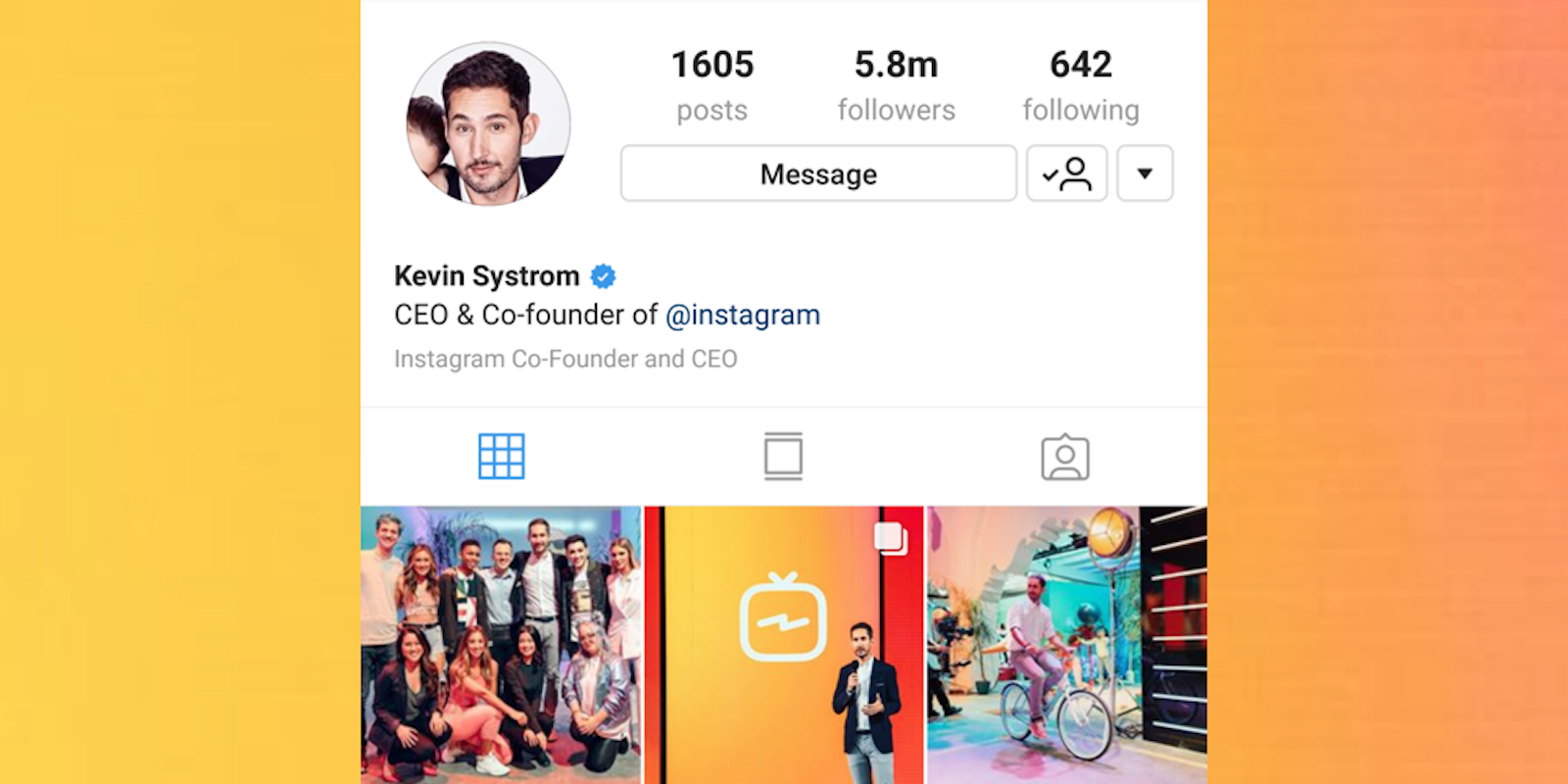Instagram users can finally apply for verified status in the app as of this week. The change should finally help make it easier for people to identify legitimate versus fake or fan accounts in the app. Instagram is also making changes so that users can learn details about important accounts.
First, to gain verified status with your Instagram account, you’ll need to head to the app’s settings. There, scroll and select “request verification.” Here, you’ll need to input your Instagram account name, your full name, and a business or legal ID. Instagram will take some time to review the request, and then will notify whether your verified status has been approved or denied.
If approved, a verified badge will appear next to your name on your Instagram account. Instagram won’t just verify anybody: According to the Help page on the topic, you’ve got to be a public figure, celebrity, or global brand to qualify. Even if you do meet those requirements, Instagram still reserves the right to decide whether your account is verification-worthy. The app is prioritizing verified status for users who have a high likelihood of being impersonated.
For users who have a verified Facebook status but not a verified Instagram account, the app recommends linking the two to help followers know your account is authentic.
To further add credibility to important accounts, Instagram is adding an “About This Account” section for profiles with a large number of followers. This will detail when the user joined Instagram, what country they’re in, their username changes history for the past calendar year and any ads associated with the account. The app also added new forms of two-factor authentication, so users can employ a third-party option like Google Authenticator, rather than text-message based multi-factor authentication.
Thus far, Facebook, Twitter, and Google have been primary targets for mass disinformation campaigns, but with the impending 2018 midterm elections, Instagram could be a way to spread discord and false news, as well.
H/T the Verge
